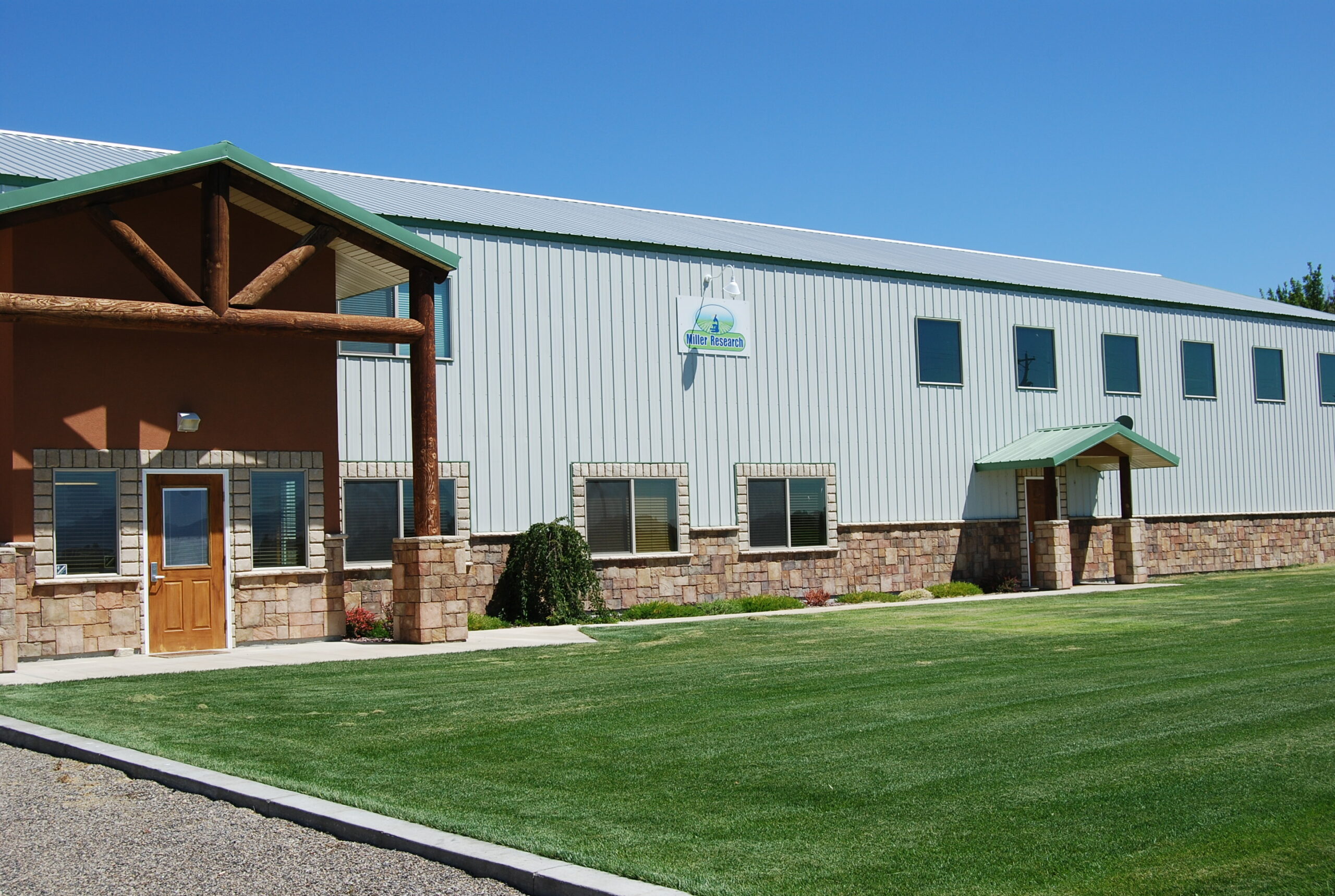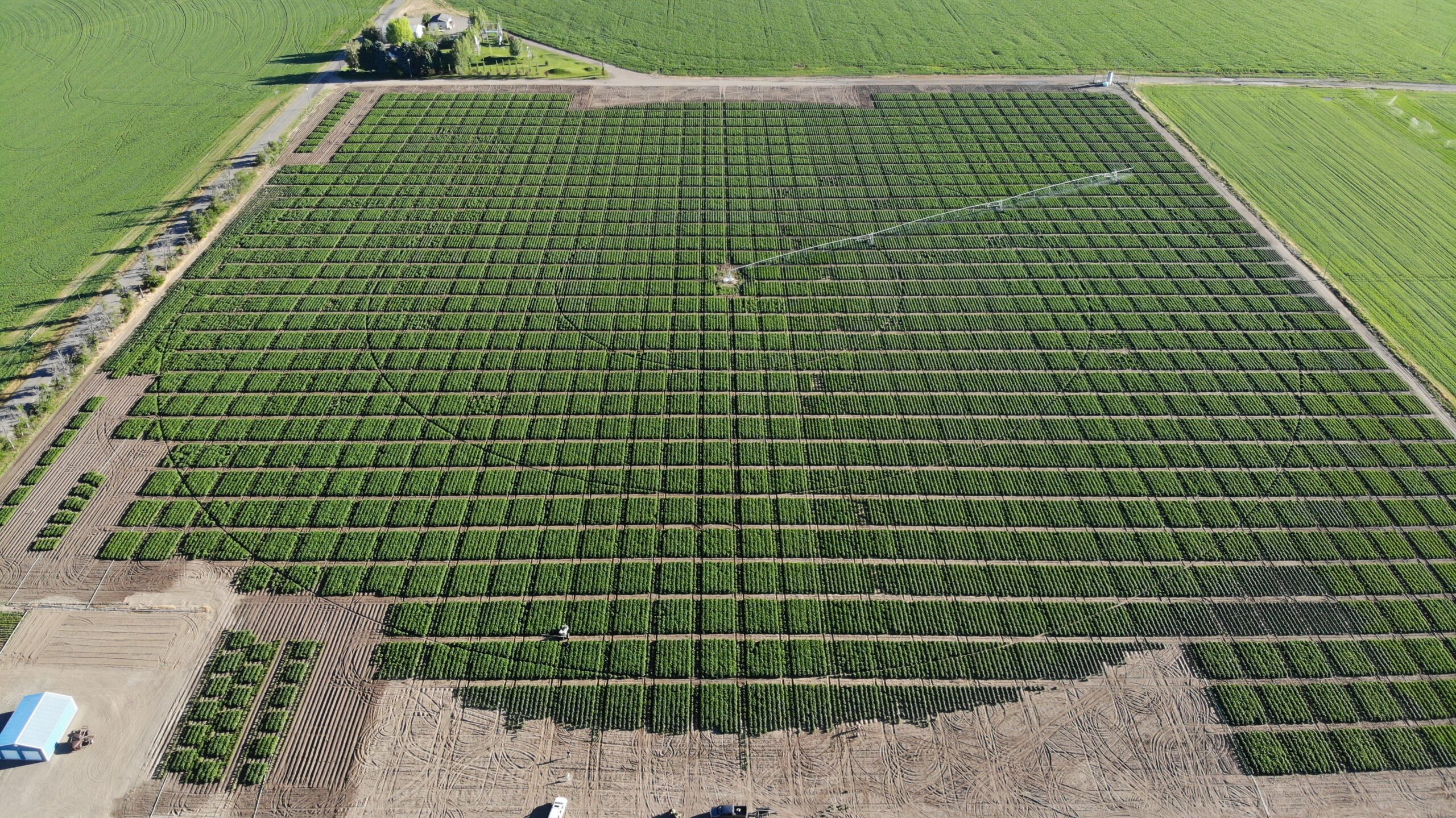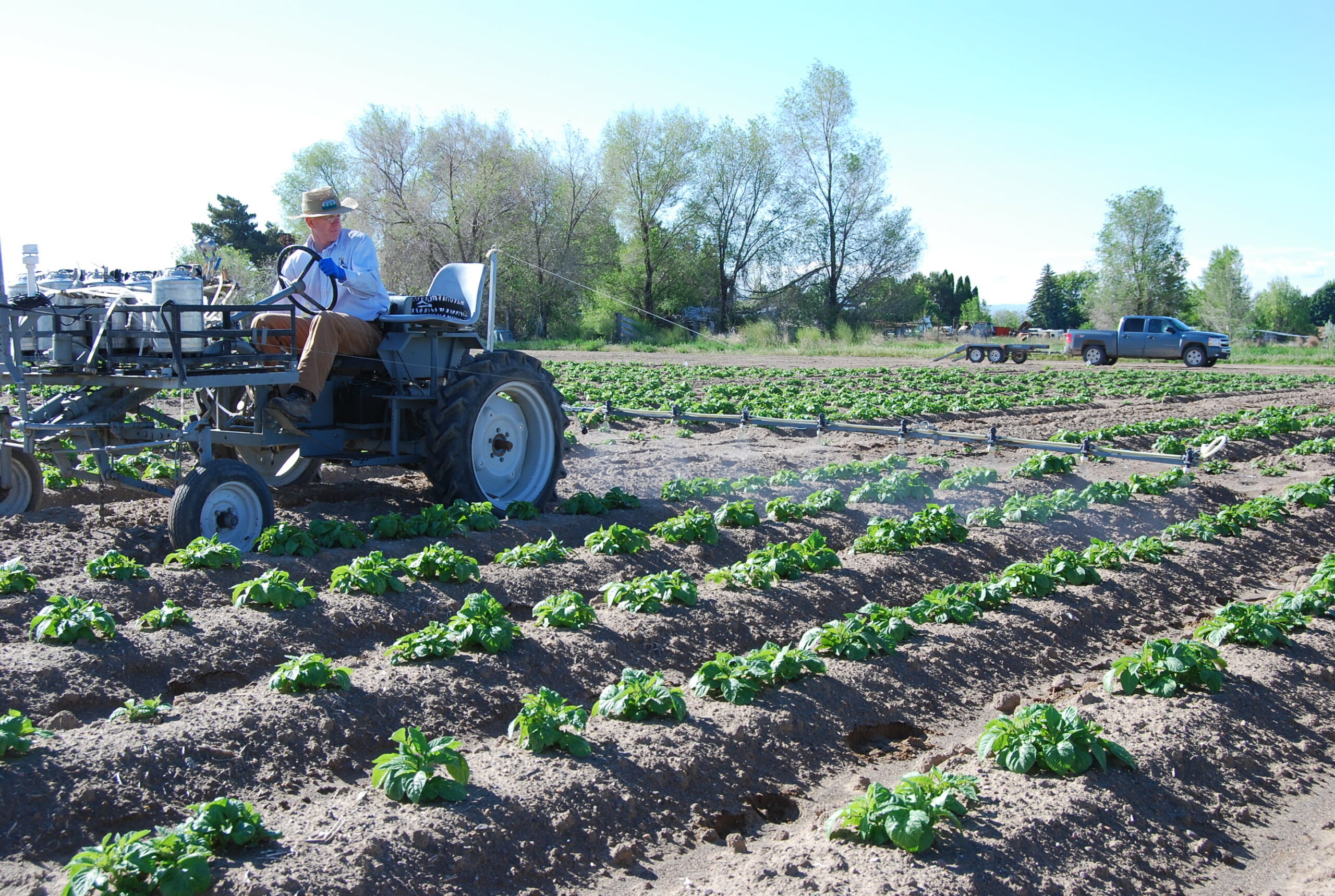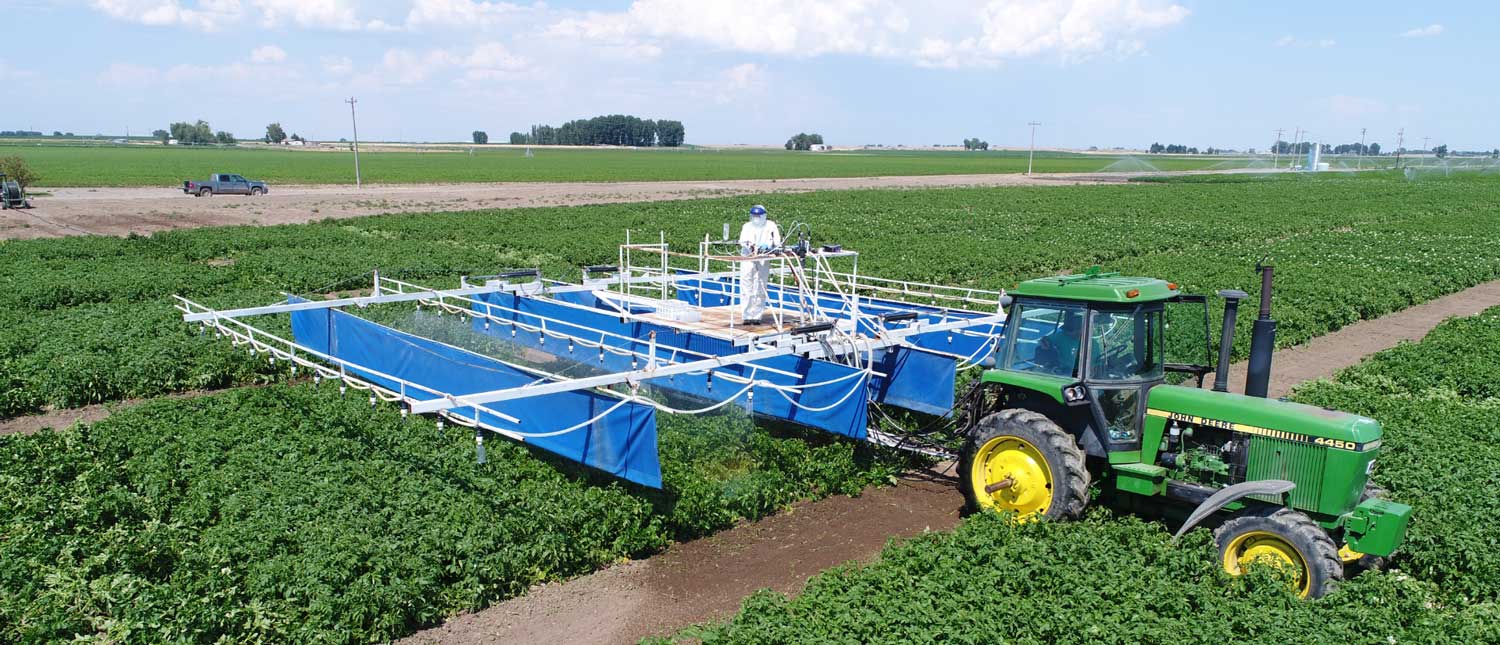Our Capabilities
Miller Research is a contract research company focused on providing accurate, unbiased agricultural research information.
Miller Research has been conducting contract agricultural research since 1975. We have been conducting research under Good Laboratory Practices as outlined in the Federal Insecticide, Fungicide and Rodenticide Act (FIFRA) 40 CFR Part 160 since 1989. Routine Quality Assurance inspections have been performed by various quality assurance units since 1988.
We have conducted efficacy and residue research on potatoes, sugarbeets, wheat, barley, alfalfa (newly seeded and established), canola, field and sweet corn, dry beans, green and dry peas, turf grass, lima beans, carrots, clover, onions, lentils, and red beets. Research projects have included pest management (disease, insect, and weed control), fertility trials, regulated crop trials, and experiments aimed at improving cultural practices.
Miller Research personnel have diverse backgrounds in conducting research, farming, machine and equipment design, operation, and maintenance, crop production, sample collection, data assimilation, harvesting and shipping procedures, and record keeping. We are well-qualified to supply contract research sponsors with the data needed in a timely manner for quality research trials. Standard Operating Procedures are in place for research activities and maintenance tasks. We have conducted trials for over 120 companies and performed cooperative research with four different land-grant universities. We regularly received funding from the Idaho Potato Commission since our founding and currently receive support from the Northwest Potato Research Consortium to conduct research projects of interest to potato producers.
Videos showing many aspects of our company and research capabilities can be viewed at the Miller Research YouTube channel:
https://www.youtube.com/user/jshauram/videos
Facilities
Miller Research owns 1000 acres of farmland near Acequia, ID where research is primarily managed. This eliminates problems associated with the successful control and completion of field studies. Land ownership allows us to control all facets of crop production and to maintain precise records. Our research plots are monitored regularly, as we are less than 15 minutes from any site. Our office complex and modern manufacturing shop is well-suited for both business and research. We are able to accommodate face-to-face training and field tours.
Research Techniques
We have developed the Miller Research small plot sprayer which has helped to improve product application uniformity and allow for independent application of test substance in different experimental replications. A spray boom is mounted on a small tractor equipped with a hydrostatic drive. The hydrostatic drive allows for us to drive at application speed from the beginning to the end of each plot. Twelve separate stainless steel tanks can be mounted on the sprayer. Test products used for spraying are placed in the tanks and mixed by placing a Teflon-coated laboratory magnet inside the tank. A second magnet is located under the tank and is turned with a hydraulic motor. The rotation of the bottom magnet causes the magnet inside the tank to turn allowing for constant agitation of the test products during application. The spray tanks are pressurized with compressed air and each tank is individually pressurized and protected with one-way valves to prevent intermixing of tank products. We have also designed equipment that allows us to apply test chemicals with the same technology during planting operations for many crops. Our application technologies allows us to apply test products as in-furrow, banded and broadcast applications through ground, simulated aerial and chemigation methods all in the same study.
Miller Research has developed a method to simulate center pivot chemigation, fertigation and irrigation in small, replicated plots. We worked with Senninger Irrigation engineers to develop a system that would allow us to deliver a uniform water pattern in a 24 x 40 foot area. This system allows us to evaluate the efficacy and residue of products applied through an irrigation system. The system puts on water at a rate similar to a 900 gallon/minute pivot operating at 100% (about 0.13 inches of water in 12 minutes).
We designed a tractor-mounted soil probe for dissipation studies. Our soil probe has more functionality than the Gidding or Concord samplers and uses the same type of soil probe- liners. Our probe moves laterally 36 inches from one side to the other. A platform is mounted on the probe for the purpose of carrying workers and supplies as the tractor drives over the plot. This eliminates any foot traffic on the plot surface area. The tractor mounted probe can place 2900 pounds of pressure to collect soil cores. A soil casing probe is used to excavate and remove the top six inches of the soil, and prevent surface soil from contaminating deeper soil cores. A second soil core can then be taken to whatever depth is specified by the sponsor. In recent dissipation trials we have collected soil to a depth of 48 inches. This probe has allowed us to provide quality soil cores for our clients.
Before conducting our first foliar dislodgeable residue study we recognized that there were serious inadequacies in the only leaf punch tool available. Protocols were being written to work around these mechanical problems. In concert with Christiansen Machine Co., we developed a new prototype leaf punch that could be used without those associated problems. The current production model punch has allowed researchers to conduct dislodgeable studies without compromising accuracy because of mechanical difficulties in collecting the leaf samples.
We are invited speakers, not only to Idaho growers, but to growers, industry and university entities throughout the United States and Canada. Our experience, land ownership, physical facilities and equipment manufacturing capabilities allow us to provide quality, repeatable research for our clients.
The main crops for our research are potatoes, sugar beets, small grains, dry bean, and corn.
Crop Injury Claims
Another service, in addition to research, is investigation and validation of damage claims relating to agricultural crops. Without resolution, this sometimes leads to serving as expert witnesses.
Our founder, Dr. Terry Miller, talks about how Miller Research got started.

The Miller Research office and shop located at 426 E 200 N, Rupert, ID.

The Miller Research West Experimental Farm located near Rupert, ID in 2020 planted to potato.

Fertilizer foliar application to potatoes at the hooking stage.

Simulated chemigation of fungicides using the “Mantis” chemigator.
